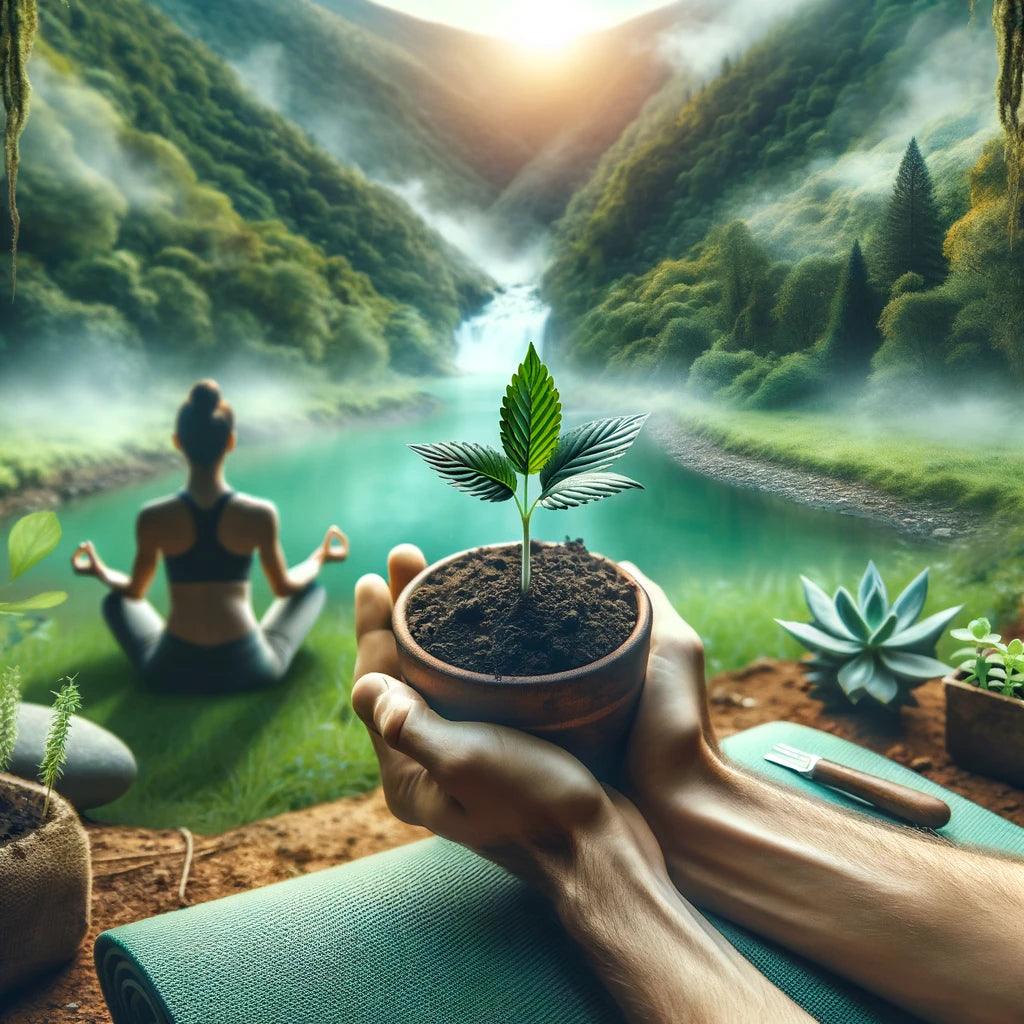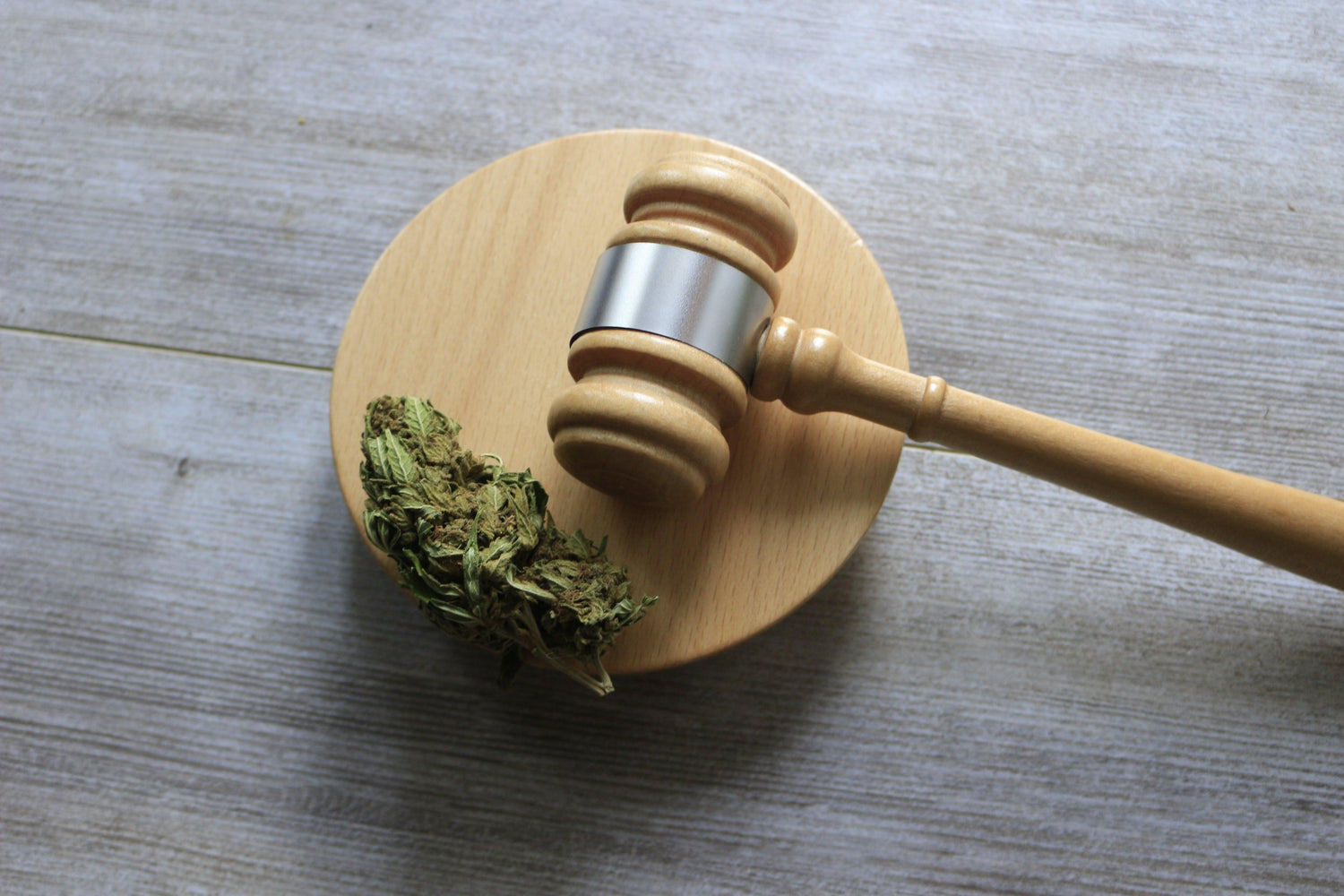In this article we will tell you the difference between THC and CBD, two of the best-known molecules present in cannabis plants. Different effects, different properties but also great similarities, especially when it comes to the Entourage Effect. Read the whole article to discover the characteristics of these two important compounds and their effects on the body, specifically we will tell you about:
- What is THC?
- What is CBD?
THC and CBD are two very well-known acronyms and often associated with each other: for example we know that when we talk about THC and CBD we are always talking about cannabis . And so far everything is clear.
But while the basic knowledge regarding THC is quite widespread, ideas are less clear when it comes to CBD; yet THC users have also taken CBD, although perhaps without their knowledge! So let's try to shed some light on the similarities and differences between these two substances, so as not to lump all herbs together.
What is THC?
First of all the acronyms: THC is the chemical formula of Delta-9-tetrahydrocannabinol , and CBD instead stands for cannabidiol .
As the homophony suggests, the two are close relatives because they are both phytocannabinoids , that is, two of the numerous chemical compounds present in the various species of the cannabis genus (for example, just think that in cannabis sativa alone there are around seventy active chemical compounds ).
THC is certainly the best known of the active ingredients of cannabis:
it is a psychotropic substance, i.e. capable of modifying the psycho-physical state of a subject (perception, mood, state of consciousness, behavior, etc.). It is, in simple terms, responsible for the so-called " high " , the set of well-known effects of marijuana on the consumer: euphoria, relaxation, weight, appetite, etc.
The effect is due to the fact that when THC enters the circulation, it binds to the receptors of nerve cells; when this interaction between THC and the brain occurs, dopamine is released. The effects of THC can last more than two hours and are felt approximately 10-30 minutes after ingestion .
However , everything depends on the concentrations of THC present in the plant, indeed: it is precisely these concentrations that act as a divide between banned cannabis species and others whose cultivation is permitted. In fact, it is precisely because of this alteration of the state of consciousness that THC is actually illegal in most countries in the world.
At the same time, however, research on THC has brought to light some of its interesting properties which suggest possible therapeutic applications and which have pushed some countries to eliminate it from the list of prohibited drugs: this is the case of some states in the USA, Canada , and some European countries that have started an experiment aimed at including cannabis among the medical remedies available under prescription.
It has in fact been shown that THC can act effectively against chronic diseases and disorders of various nature (including asthma and glaucoma), stimulating appetite, offering relief and reducing pain in cases where conventional drugs cannot be used to their harmful side effects.
What is CBD?
And now let's analyze CBD : its main difference from THC (and - let's face it - the reason why it has long remained in the shadow of its "big brother") is that CBD is not a psychoactive compound: it does not alter the senses or the state of consciousness to a substantial extent, in short: it doesn't "get high".
This aspect has made it particularly interesting for the scientific community, and for the same reason it is not subject to any legal restriction: no country prohibits the consumption of CBD (with the exception of the United Kingdom, where CBD is included among the scheduled drugs -1 and therefore, technically, illegal), and is currently found on the market mainly in the form of sweets or chewing gum, creams and liquid concentrates (which however must not have a THC content higher than 0.05%).
Although medical research on the subject is still calibrated by the prejudice that THC and CBD have in common, the latter has already proven to be a compound rich in properties.
CBD is in fact able to interact with receptor cells, increasing the response of the human nervous system. It is also an effective natural inhibitor. These virtues make it an excellent ally in the treatment of various forms of schizophrenia, social anxiety disorder and depression.
On a purely physiological level, however, it has proven effective against migraines, muscle spasms, inflammation and arthritis. One of its strong points from the point of view of medical use is the possibility of its administration without experiencing the side effects inevitably induced (and not necessarily desired) by THC: alteration of the senses, feeling of heaviness, lethargy.
It is precisely on this basis that a part of the scientific community is pushing to complete the search for all its characteristics: a necessary step in order to definitively ascribe it to the category of drugs.
CBD also influences the effects of THC by enhancing its analgesic efficacy and prolonging its duration of action, and at the same time reduces its side effects on heart rate, breathing and body temperature. It is no coincidence that some of those who use marijuana or derivatives for recreational purposes accompany the intake of small doses of CBD to "soften" the effect and attenuate unwanted peaks.
In short, with a bit of ease one could say that CBD is the "sensible brother" of THC, and if in some aspects they are similar, in other aspects they are almost opposite: THC can in fact occasionally induce states of anxiety or paranoia (especially on sporadic users), while as mentioned , CBD is an anti-psychotic .
Following an experimental administration of THC and CBD alternately on one hundred and thirty-four subjects to verify their psychotomimetic effects, none of the volunteers complained of symptoms associated with anxiety or paranoia while under the effect of CBD .
Another radical difference is that while one of the main reasons why many people use marijuana is its soporific properties, CBD on the other hand has a lighter, more attenuated effect and in some cases can also reduce the effects of insomnia . varieties with high concentrations of THC cause drowsiness in those who take them, a characteristic that is less pronounced in those varieties with low levels of THC or high levels of CBD .
It is precisely their differences that have led and are leading many growers to select Cannabis plants with high CBD percentages and low THC content.
If the article was of interest to you, share it on social media with the rest of the Community, every single share helps us support our blog and keep you 360° informed on the world of Cannabis.
You might also be interested in:









